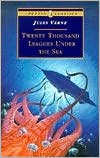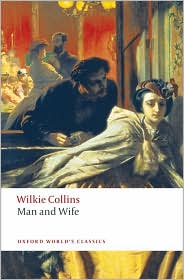The English Governess at the Siamese Court: The True Story Behind 'The King and I' by Anna Harriette Leonowens. 1870/1999. 320 pages.
I have been intending to read this "memoir" for a decade now; I decided to read it this year for the book to movie reading challenge. This memoir and the movie have very little in common, perhaps with two exceptions. First, the English governess (Anna) did want the King to fulfill his promise of a house outside the palace. Second, there is one conversation from the memoir that made it (to a certain degree) into the movie. It comes early in the film.
The king shook hands with us, and immediately proceeded to march up and down in quick step, putting one foot before the other with mathematical precision, as if under drill. "Forewarned, forearmed!" my friend whispered that I should prepare myself for a sharp cross-questioning as to my age, my husband, children, and other strictly personal concerns. Suddenly his Majesty, having cogitated sufficiently in his peculiar manner, with one long final stride halted in front of us, and pointing straight at me with his forefinger, asked, "How old shall you be?"For those expecting the "memoirs" to be personal (about herself, about her son, about the king, about the king's wives, about the king's children, about the royal court, etc.) you will likely be disappointed. For those expecting the "memoirs" to be entertaining, chances are you'll be disappointed as well. Travel writing does not have to be a bore. A travel writer can attempt to be objective and interesting at the same time.
Scarcely able to repress a smile at a proceeding so absurd, and with my sex's distaste for so serious a question, I demurely replied, "One hundred and fifty years old."
Had I made myself much younger, he might have ridiculed or assailed me; but now he stood surprised and embarrassed for a few moments, then resumed his queer march; and at last, beginning to perceive the jest, coughed, laughed, coughed again, and in a high, sharp key asked, "In what year were you borned?"
Instantly I struck a mental balance, and answered, as gravely as I could, "In 1788."
At this point the expression of his Majesty's face was indescribably comical. Captain B—— slipped behind a pillar to laugh; but the king only coughed, with a significant emphasis that startled me, and addressed a few words to his prostrate courtiers, who smiled at the carpet,—all except the prime minister, who turned to look at me. But his Majesty was not to be baffled so: again he marched with vigor, and then returned to the attack with élan.
"How many years shall you be married?"
"For several years, your Majesty."
He fell into a brown study; then, laughing, rushed at me, and demanded triumphantly:—
"Ha! How many grandchildren shall you now have? Ha, ha! How many? How many? Ha, ha, ha!"
Of course we all laughed with him; but the general hilarity admitted of a variety of constructions.
I definitely preferred the musical, "The King and I" to the memoir.
Personally, I found the book to lack narrative structure or flow. While a handful of the chapters were mildly entertaining and/or interesting, most were not. One chapter didn't necessarily flow into the next. And the subjects covered were all over the place. The tone of this one was unpleasant as well. At times, the narrator comes across as too condescending, too judgmental. For example:
In common with most of the Asiatic races, they are apt to be indolent, improvident, greedy, intemperate, servile, cruel, vain, inquisitive, superstitious, and cowardly; but individual variations from the more repulsive types are happily not rare.or
There were delightful discoveries of beauty in the artless, childish faces that greeted us every morning; and now the only wonder was that I had been so slow to penetrate the secret of their charm.
There were some portions of text that could prove charming or interesting:No friend of mine knew at that time how hard it was for me to bear up, in the utter loneliness and forlornness of my life, under the load of cares and provocations and fears that gradually accumulated upon me.But ah! if any germ of love and truth fell from my heart into the heart of even the meanest of those wives and concubines and children of a king, if by any word of mine the least of them was won to look up, out of the depths of their miserable life, to a higher, clearer, brighter light than their Buddha casts upon their path, then indeed I did not labor in vain among them.
"I have sixty-seven children," said his Majesty, when we had returned to the Audience Hall. "You shall educate them, and as many of my wives, likewise, as may wish to learn English. And I have much correspondence in which you must assist me. And, moreover, I have much difficulty for reading and translating French letters; for French are fond of using gloomily deceiving terms. You must undertake; and you shall make all their murky sentences and gloomily deceiving propositions clear to me. And, furthermore, I have by every mail foreign letters whose writing is not easily read by me. You shall copy on round hand, for my readily perusal thereof."
We found his Majesty in a less genial mood than at my first reception. He approached us coughing loudly and repeatedly, a sufficiently ominous fashion of announcing himself, which greatly discouraged my darling boy, who clung to me anxiously. He was followed by a numerous "tail" of women and children, who formally prostrated themselves around him. Shaking hands with me coldly, but remarking upon the beauty of the child's hair, half buried in the folds of my dress, he turned to the premier's sister, and conversed at some length with her, she apparently acquiescing in all that he had to say. He then approached me, and said, in a loud and domineering tone:—"It is our pleasure that you shall reside within this palace with our family."I replied that it would be quite impossible for me to do so; that, being as yet unable to speak the language, and the gates being shut every evening, I should feel like an unhappy prisoner in the palace."Where do you go every evening?" he demanded."Not anywhere, your Majesty. I am a stranger here.""Then why you shall object to the gates being shut?""I do not clearly know," I replied, with a secret shudder at the idea of sleeping within those walls; "but I am afraid I could not do it. I beg your Majesty will remember that in your gracious letter you promised me 'a residence adjoining the royal palace,' not within it."He turned and looked at me, his face growing almost purple with rage. "I do not know I have promised. I do not know former condition. I do not know anything but you are our servant; and it is our pleasure that you must live in this palace, and—you shall obey." Those last three words he fairly screamed.I trembled in every limb, and for some time knew not how to reply. At length I ventured to say, "I am prepared to obey all your Majesty's commands within the obligation of my duty to your family, but beyond that I can promise no obedience.""You shall live in palace," he roared,—"you _shall _live in palace! I will give woman slaves to wait on you. You shall commence royal school in this pavilion on Thursday next. That is the best day for such undertaking, in the estimation of our astrologers."With that, he addressed, in a frantic manner, commands, unintelligible to me, to some of the old women about the pavilion. My boy began to cry; tears filled my own eyes; and the premier's sister, so kind but an hour before, cast fierce glances at us both. I turned and led my child toward the oval brass door. We heard voices behind us crying. "Mam! Mam!" I turned again, and saw the king beckoning and calling to me. I bowed to him profoundly, but passed on through the brass door.
But his Majesty was notably temperate in his diet, and by no means a gastronome. In his long seclusion in a Buddhist cloister he had acquired habits of severe simplicity and frugality, as a preparation for the exercise of those powers of mental concentration for which he was remarkable. At these morning repasts it was his custom to detain me in conversation relating to some topic of interest derived from his studies, or in reading or translating. He was more systematically educated, and a more capacious devourer of books and news, than perhaps any man of equal rank in our day. But much learning had made him morally mad; his extensive reading had engendered in his mind an extreme scepticism concerning all existing religious systems.
The love of children was the constant and hearty virtue of this forlorn despot. They appealed to him by their beauty and their trustfulness, they refreshed him with the bold innocence of their ways, so frolicsome, graceful, and quaint.
But it was my consolation to know that I could befriend the women and children of the palace, who, when they saw that I was not afraid to oppose the king in his more outrageous caprices of tyranny, imagined me endued with supernatural powers, and secretly came to me with their grievances, in full assurance that sooner or later I would see them redressed. And so, with no intention on my part, and almost without my own consent, I suffered myself to be set up between the oppressor and the oppressed.
© 2013 Becky Laney of Becky's Book Reviews







I read Margaret Landon's version of Anna's story and really liked it. There's an even older movie version with Irene Dunn called Anna and the King, but it doesn't hold a candle to the later versions.